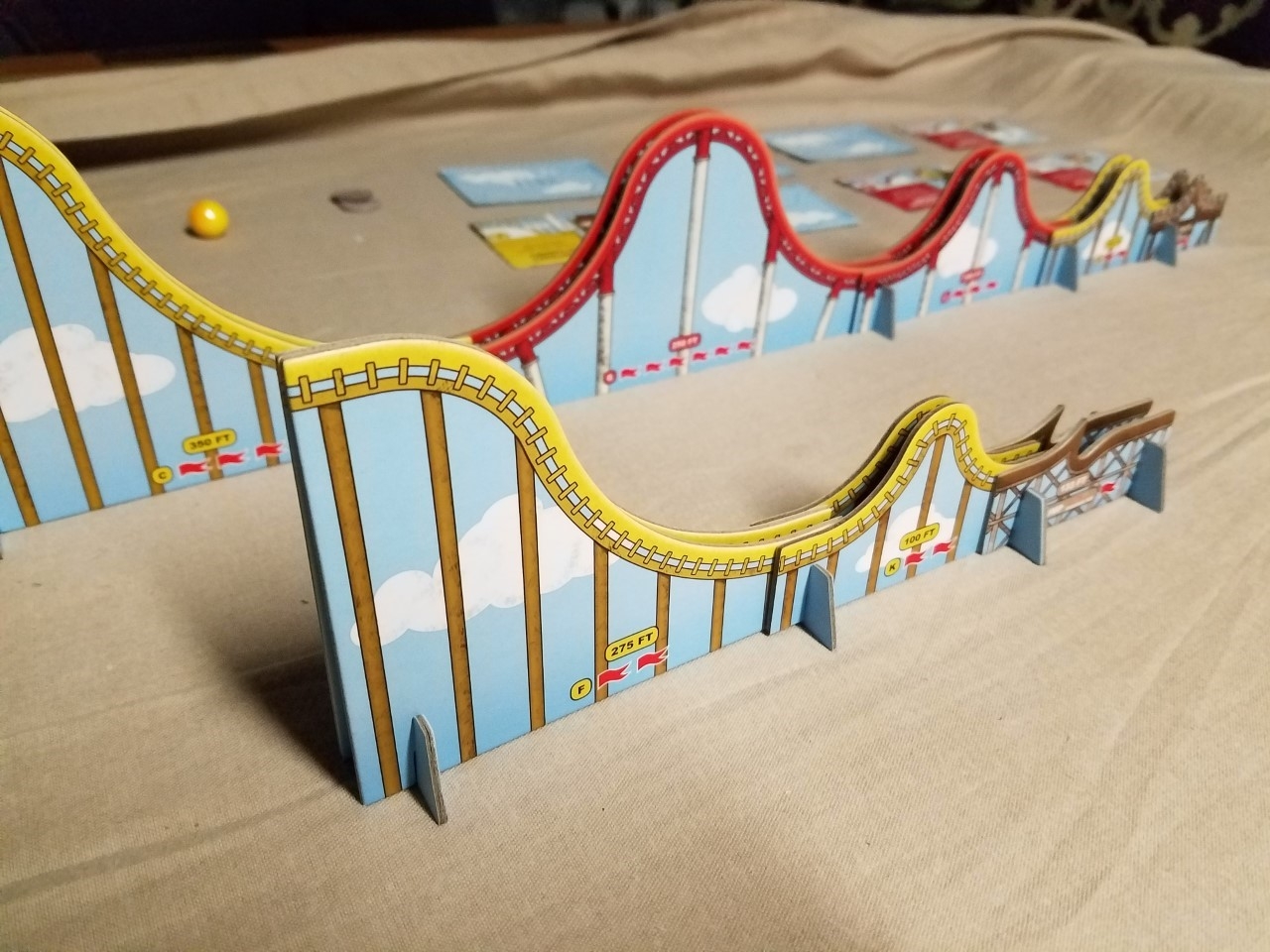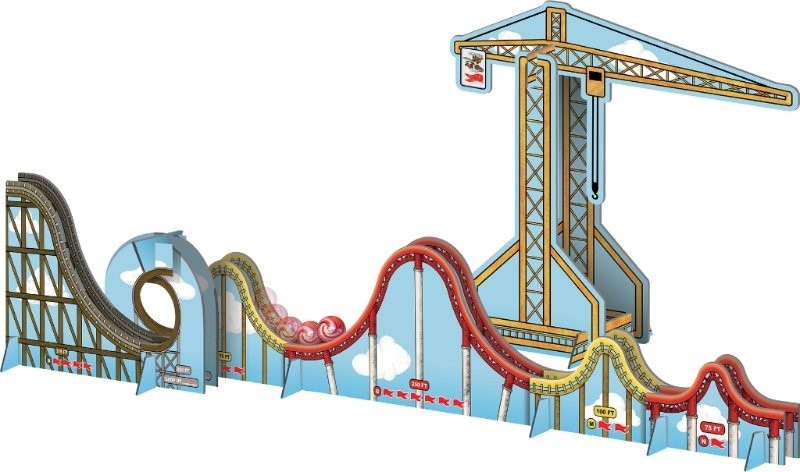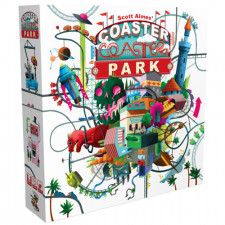Coaster Park Review
on Jan 31, 2018
Critical Hits: Beautiful and when it works, it’s pretty awesome
Critical Misses: Bland auction forms the majority of play, gameplay does not work reliably
Hovering over the table you roll the smooth glass marble across the sweaty grooves of your palm. Eyes peeled on the elongated track of your newborn exhilaration-baby, you let the circular approximation of a coaster of pedestrians hover at the top of the thrill ride. It all begins with a gentle roll, slick surface spinning down the crisp edge of punched cardboard.
Down into the pit of the first glistening hill and up to the crest, it was sublime. The children were laughing, the adults were hollering, and this was entertainment as it ought to be - reckless and on the edge of the sky. Then it all went terribly wrong.
The spherical coaster reached a velocity that was not conducive to staying on the rickety downslope of the outstretched track. The little glass disaster wanted to fly and a make-believe metal contraption built by the lowest bidder wouldn't tell it no. Skipping off the edge of the cardboard rail, the shouts of joy turned to screams of terror. Clack-clack-clack, the marble skittered across the table and the briefest moment of joy turned to disgust and frustration.
This is Coaster Park. It's a game that has enormous promise but one that struggles mightily to get there.

The pitch goes down easy: build a 3D roller coaster and attempt to successfully roll marbles down the grooved pathways of your hill-acious beast. Not long beyond the pitch it begins to fall apart. That first crucial stumble is in the auction system.
Coaster Park utilizes a very simple one-go-around-the-table bid where the first person to meet what the price-setter demands grabs the section of track and attaches it to their work in progress. This forms a simple vehicle for distributing the 3D hills and it functions acceptably in that regard.
Where the system as a whole falters is in placing such a large emphasis on this purchase structure. The vast majority of play will be this somewhat dull exchange of coins for coaster parts where players can't even outbid each other and the stakes feel surprisingly small. You spend very little time actually engaging with your 3D creation and are not allowed to even play with it while waiting for your turn, as this harms the strategic integrity of the design.
The only moments you actually roll the marble down your track to test it are when passing on securing a new hill in that purchase round. This opportunity is actually somewhat infrequent, as the bid will often not even reach you when playing with a full complement of four players. When it occasionally does you will often want to snatch up the track piece before someone else gets their greasy mitts on it.

Each section of track is worth a number of points but only earns its value if the marble successfully traverses the hill in the final test during the end game. When testing track, whether mid-round or in the final run, you get three such rolls of the marble. You keep your best result in that final qualifier, removing sections of hills that the marble did not make it through.
It's all appropriately simple, really. But that simplicity in overall weight is bent awkwardly with the odd focus on the auction, and the fact that it's interrupted mid-stream with player's testing their builds, as well as the fact that the game is designed with the premise of focus on skill.
While a few coaster builds work with users simply dropping the marble on the starting track and letting it roll of its own volition, many require a forced entry or flick to get the death-car to make it past those more persnickety pieces of engineering. This is a solid design goal of requiring an element of skill to surmount the difficult builds, but it frankly doesn't quite work as well it should.
Dexterity games must demand an application of achievable talent in order to avoid becoming stale. If you could simply drop the marble the game would lose playability once you've determined optimal builds. This would quite obviously be a terrible decision. However, the skill floor for the lowest scoring and most common of performances must be forgiving.
For instance, take any of the fantastic dexterity games we've seen and look at their barrier to entry. Coconuts certainly utilizes skill to shoot the small brown nuggets into baskets. But even those with one eye and a shaky hand can land shots with some regularity at the beginning of play. Likewise, Pitchcar is a design that allows for regular slow progress with simple flicks, yet those with gumption and a keen finger can fly down the track and achieve massive success. These games meet you halfway, allowing those on the lowest rung to at least see measurable progress.
Coaster Park, more often than not, is maddeningly difficult. Even when following the strict yet necessary instructions of how to properly link up the tracks and carefully building structures with a notion of physics in mind, the marble still proves rebellious beyond anything but a very simple pair of descending hills. It can become very frustrating and feels far too random to achieve frequent and consistent success.
Crazy shots from adept players somehow pushing the sphere down the track and willing it to fly like Evil Knievel are certainly achievable, but I'd be surprised if they could be performed with any regularity. This makes a three-run test very fickle, particularly when you get few opportunities to interact with your track during the bulk of play.
Coaster Park certainly has drama and the spectacle of the final moments is endearing, but as a game it simply won't work for many participants. There is likely a select group who doesn't mind the auction focus and wobbly proposition of ride testing, but most will find their expectations dashed and their hopes deflating like a group of kids vaulting off the track and smashing head-first into your tabletop.

 Customer Support
Customer Support  Subscribe
Subscribe 




 Account
Account  Wishlist
Wishlist 

